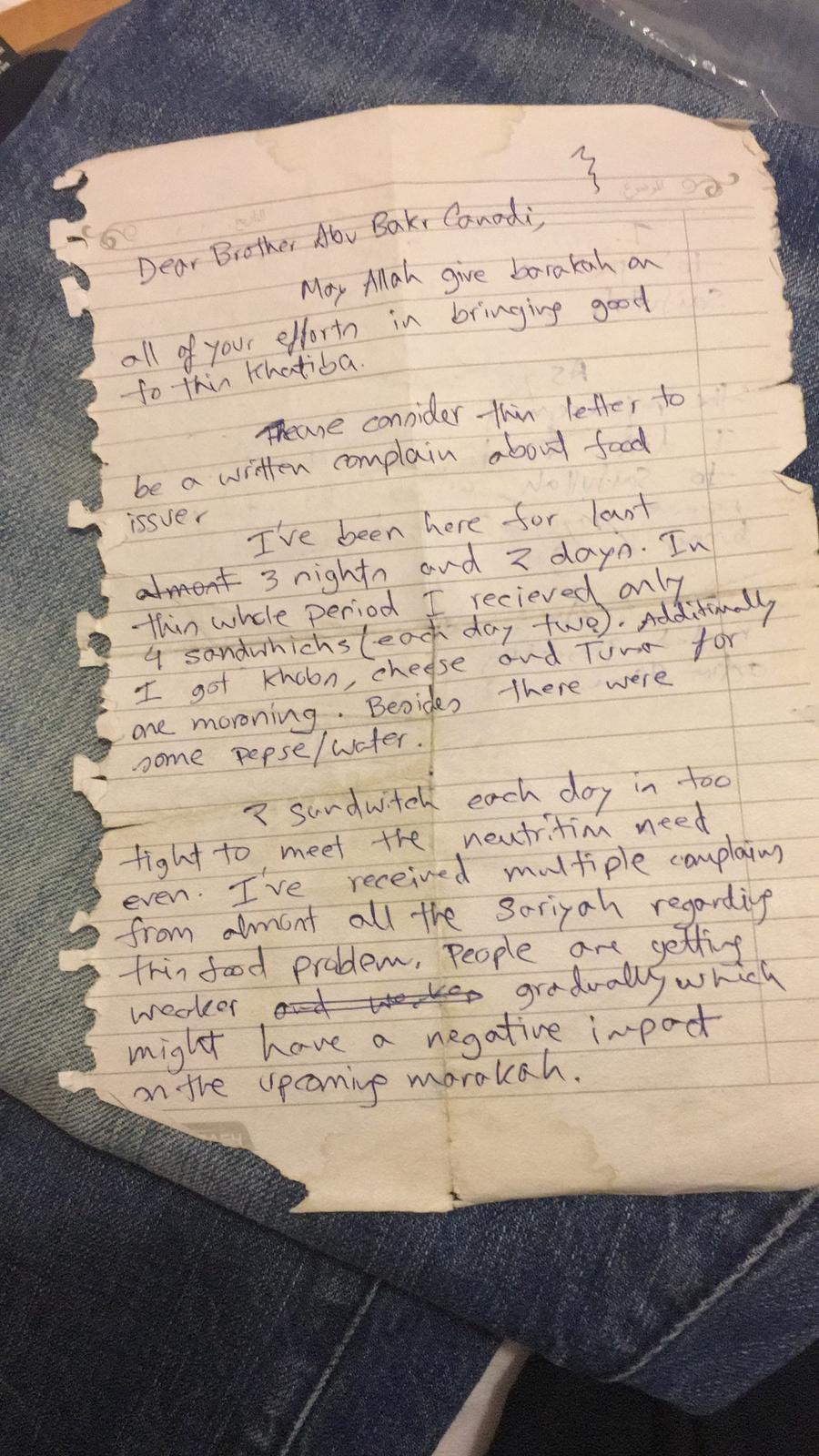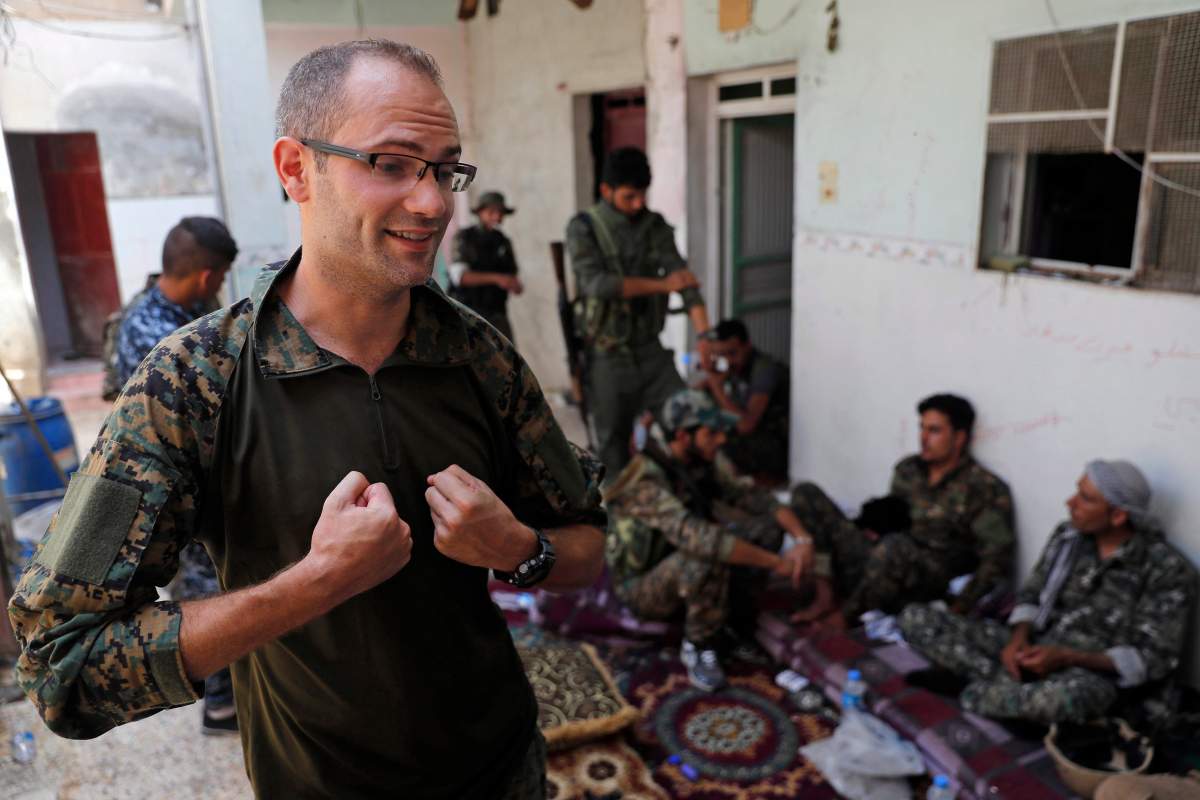A letter complaining about food, addressed to a prominent Canadian member of the so-called Islamic State, has been found in the group’s former capital of Raqqa, Syria.

Written on a page torn from a notebook, apparently by an English-speaking ISIS fighter, the letter warns the lack of food could have a “negative impact” on the battlefield.
“I’ve been here for last 3 nights and 2 days. In this whole period I received only 4 sandwichs [sic],” it said. “2 sandwitch [sic] each day is too tight to meet the nutrition need even.”
Macer Gifford, a British citizen who fought in Syria against ISIS with U.S.-backed Kurdish forces, said he found the letter in September 2017.

Get breaking National news
“It was in an apartment block between the stadium and the hospital,” he said. “The entire street once housed foreign ISIS fighters. This was evident by the amount of foreign material.”
“I kept the letter because it was in English and faintly amusing. Hardly the die-hard jihadi warrior that they like to portray, just a moaning Westerner that’s out of his depth.”
WATCH: Canadian ISIS fighter captured in Syria says he wants to return to Canada

A captured ISIS member from Mississauga, Muhammad Ali, told Global News a Canadian named Abu Bakr led the Anwar Al-Awlaki Brigade, a group made up of English-speaking foreign fighters.
“An urgent action is badly needed,” it ended.
The signature is illegible.
The existence of the Awlaki battalion was first reported by the anti-ISIS group Raqqah is Being Slaughtered Silently, which said the unit was composed of English-speaking foreign fighters assigned to “destabilize the security of the coalition countries.”
The Australian newspaper reported that intelligence agencies had identified 10 Australians in the unit, which it said was “aimed at taking the Islamic State’s jihad abroad.” The group is named after American Al-Qaeda ideologue Anwar Al Awlaki.
In 2016, the U.S. military said the Awlaki brigade’s deputy emir, a Swedish national named Khalid Osman Timayare, was killed in an airstrike. Several Canadians were also believed to belong.
According to Ali, Abu Bakr was a member of a Syrian family and had lived in southwestern Ontario. Ali denied knowing his real name. “He was killed in Raqqah, in the siege.”










Comments
Want to discuss? Please read our Commenting Policy first.